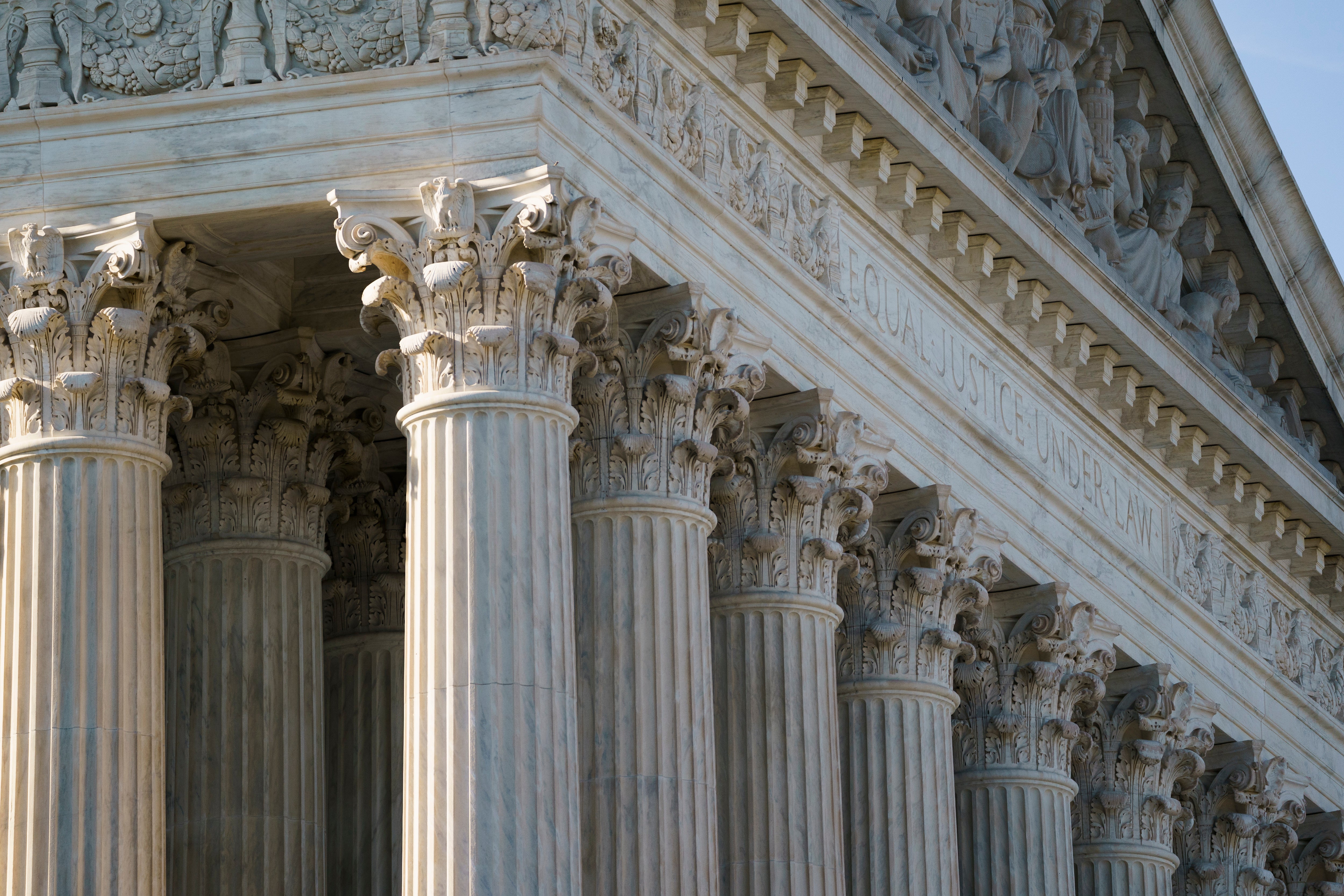Supreme Court won't sidetrack plans for natural gas pipeline
The Supreme Court has sided with a pipeline company in a dispute with New Jersey over land the company needs for the natural gas pipeline

Your support helps us to tell the story
From reproductive rights to climate change to Big Tech, The Independent is on the ground when the story is developing. Whether it's investigating the financials of Elon Musk's pro-Trump PAC or producing our latest documentary, 'The A Word', which shines a light on the American women fighting for reproductive rights, we know how important it is to parse out the facts from the messaging.
At such a critical moment in US history, we need reporters on the ground. Your donation allows us to keep sending journalists to speak to both sides of the story.
The Independent is trusted by Americans across the entire political spectrum. And unlike many other quality news outlets, we choose not to lock Americans out of our reporting and analysis with paywalls. We believe quality journalism should be available to everyone, paid for by those who can afford it.
Your support makes all the difference.The Supreme Court sided Tuesday with a pipeline company in a dispute with New Jersey over land the company needs for a natural gas pipeline.
Both liberal and conservative justices joined to rule 5-4 for the PennEast Pipeline Co. The 116-mile planned pipeline is to run from Pennsylvania’s Luzerne County to Mercer County in New Jersey. The Federal Energy Regulatory Commission had allowed the company's project to move forward in 2018 by granting PennEast a so-called certificate of public convenience and necessity, but lawsuits followed.
The company ultimately took New Jersey to court to acquire state-controlled land for its project. PennEast argued the commission’s greenlighting of its project allowed it to take New Jersey to court and to use eminent domain to acquire state-controlled properties. The Supreme Court agreed.
Chief Justice John Roberts wrote for the majority that when FERC issues a a certificate of public convenience and necessity, federal law authorizes the certificate's holder “to condemn all necessary rights-of-way, whether owned by private parties or States.”
Roberts was joined by conservative justices Samuel Alito and Brett Kavanaugh and liberal justices Stephen Breyer and Sonia Sotomayor.
The decision from the high court doesn't end litigation over the pipeline. A separate challenge to the pipeline involving New Jersey is pending in a federal appeals court in Washington
During arguments in the case in April, a lawyer for the PennEast Pipeline Co. acknowledged that if the company had lost at the Supreme Court, the 120-mile pipeline would “not be built at least in anything like its current configuration.”
New Jersey, which opposes the pipeline project, had argued that PennEast couldn't take the state to court to acquire the property — only the United States government can. The state argued that a federal law, the Natural Gas Act, does not explicitly authorize private lawsuits by private parties against states.
A federal appeals court sided with New Jersey while a lower court had sided with PennEast.
The case is PennEast Pipeline Co. v. New Jersey, 19-1039.